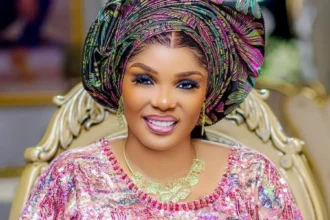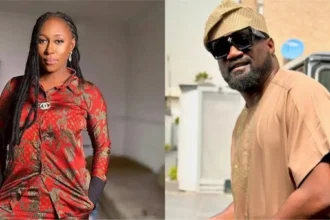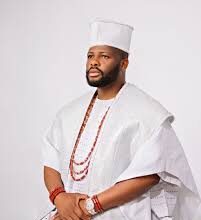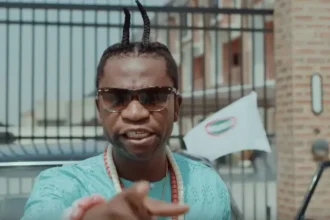By Somadina Eugene Okorie
It is undeniably a fact that royalties now top the conversation within the entertainment and music ecosystem, where creativity meets commerce.
The days of artists being content with having their songs only aired on radio are long gone. These days, the situation is reversed, which makes sense given that royalties are now a major source of income for musicians, songwriters, and composers, and for this reason, they are now putting up structures to ensure that they earn their due royalties rather than the traditional tactic of merely wanting their music played or viewed just for vague popularity.
However, navigating the complexity of royalty collection can be challenging, which is why collecting societies were established by law to play a vital role in assisting music artists to assemble or redeem such royalties that are largely due to them.
Lately, it has become impossible for anyone to determine the level of sincerity of collecting societies in Nigeria and how significant, transparent, accountable, and reliable they are, when juxtaposed to the present innovations of streaming platforms such as Apple Music, Boom Play, YouTube, Spotify, TikTok among others which serve as important tools or channels through which royalties can be better assembled and/or collected and paid to musical artistes as commercial benefits for their creative efforts.
The main argument is not far-fetched. It is a fact that the use of streaming platforms which is aided by technology and sometimes, artificial intelligence, has in recent times, upped the game of royalty collation and collection, hence majority of our music artists would rather prefer to go with streaming platforms than depend on their membership of collecting societies in earning royalties. This has become a paradigm in the music and entertainment industry today as far as royalty collection is concerned.
What are Royalties?
Royalties are payments made to the creators of music for the use or distribution of their work or body of work. They are compensatory payments received by rights holders (songwriters, producers, composers, recording artists, and their respective representatives) in exchange for the licensed use of their music.
These payments are typically generated whenever a piece of music is played, performed, streamed, broadcasted, or reproduced in any form. The principal goal of royalties is to fairly compensate creators for their artistic contributions and enable them to continue producing more.
Royalties are generally dependent on the type of copyright a musical work is classified with. It follows therefrom that there are different types of royalties such as Master rights which covers original sound recording that accrues to recording artists and record labels.
There are also Publishing rights which are rights that cover the lyrics and composition of a musical work belonging to the songwriters, lyricists, and publishers of a sound recording.
It is important to note that Publication is very key and crucial to every musical work because that is where all the profits come from. Without publication, the work of an artiste cannot be said to be complete.
Forms of Music Royalties
Mechanical Royalties: This is usually paid to songwriters and publishers for the reproduction and distribution of their music, such as through CDs, vinyl, digital downloads, and streaming services.
Public Performance Royalties: They are paid to songwriters, composers, and publishers for the public performance of their music, whether it be live performances, radio broadcasts, TV shows, or online streaming.
Synchronization Royalties: Paid to songwriters, composers, and publishers for the use of their music in visual media, such as films, TV shows, commercials, and video games.
Print Music Royalties: Paid to composers and publishers for the sale of printed sheet music.
Collecting Society…
This is not the rightful place for us to delve into the polemics of defining concepts or subjects. Nevertheless, for the purpose of this article, we shall be relying on the provision of the Copyrights Act in attempting to make a meaning of the term.
According to the new Copyright Act 2022 which repealed the Copy Right Act, 2004, A Collecting Management Organization (CMO) is defined as:
“An organization representing copyright owners, which has as its principal objective the negotiating and granting of licenses, collecting and distributing of royalties in respect of copyright works.”
[See S.88(7) of the Copyright Act, 2022].
To this end, collecting societies, also known as Collective Management Organizations (CMOs) or Performing Rights Organizations (PROs) are organizations serving as intermediaries between creators and users of music simpliciter.
In the case of Adeokin Records & Anor v. Musical Copyright Society of Nigeria (LTD) (GTE) (2018) LPELR – 45300(SC); the court held that collecting societies represent the interest of their members. This does not mean that they are the owners of the copyright in the work, they merely collect royalties on behalf of their members.
Furthermore, they are good at monitoring the usage across radio, TV, live events, and distributing the collected royalties to their members.
Some notable collecting societies include ASCAP (American Society of Composers, Authors, and Publishers), BMI (Broadcast Music, Inc.), and SESAC (Society of European Stage Authors and Composers) in the United States, and PRS for Music in the United Kingdom.
In Nigeria, the two(2) recognized collecting societies are Musical Collecting Society of Nigeria (MSCN) and Copyright Society of Nigeria (COSON), established to manage and collect royalties on behalf of their members amongst other things.
It is however important to note that by advocating for creators’ rights and streamlining the royalty collection process, collecting societies are meant to support the livelihoods of music professionals and promote the continued creation of their new works.
Brief History of Royalty
The act of monitoring and clamping on broadcasting media, clubs, TV stations, Radio Stations, and Dj’s commercializing artiste music without paying royalties dates back to 1847 when Ernest Bourget, Paul Henrion, and Victor Parizot, France’s most celebrated composers were sitting in a Café, “Cafe Des Amssadeurs” listening to their compositions being played live. The trio got angry and agitated when they came to the knowledge that the playing of their song in the Café resulted in attracting more patronage and revenue.
Enraged with the development, they refused to pay their bill on the ground that, as long as they were not entitled to receive any remuneration for the performance of their composition in the Café’s facility, they wouldn’t pay for the food they had consumed, which in turn resulted to a lawsuit.
The Court in deciding the suit filed against the artistes for recovery of the sum owed, held that an artiste holds the copyright to his public performance. This rather revolutionary and landmark decision led to the formation of the French SACEM which simply means the Society of Authors, Composers and Publishers of Music – a professional association collecting payments for the exploitation of artistes’ rights and distributing the collections to the original songwriters, composers, and music publishers in France. Search for Sandra Oyewole’s “Collection Societies in Nigeria Music Industry: The Case for Change”.
It is important to state that before the advent of collecting societies and digital streaming platforms, the only form of music marketing in Nigeria was carried out manually through the use of compact discs. Where artistes granted licenses to music marketers who then duplicated the single compact disc received into several copies to be sold on the streets. Some of the popular Music marketers were based in Alaba International Market, Lagos, Nigeria led by the likes of T. Joe Music, Danco Music, AHBU Ventures, Obaino Music and so forth. These were part of the popular music distribution and marketing companies in existence at the time. As earlier pointed out, during this time, most music artistes considered it a privilege to have their songs played free of charge to the public without going after the royalties accruing therefrom.
The Emergence of Copyright Society of Nigeria and the Role of Collecting Societies in Nigeria.
The Copyright Society of Nigeria (COSON) was established in 2010 and serves as one of the collecting societies established and recognized by the Nigeria Communication Commission to spearhead and grant license to artistic works of sound recording for public and commercial use.
The purpose of COSON was to streamline and ensure that artistes are compensated for their works when their music is performed or used in a public or commercial space.
The roles of collecting societies such as COSON are well defined in the laws establishing them. Their principal objectives are mainly to help ensure that inventors and creators receive fair compensation for the use of their work whilst simplifying the process for third parties to obtain the necessary license required to use their compositions. Their function as enshrined in section 88(7) of the Copyright Act 2022, includes:
Royalty Collection: Collecting societies collect royalties from various sources, such as radio stations, streaming platforms, venues, and businesses that use music. They then distribute these royalties to the appropriate rights holders, including songwriters, composers, and publishers.
Licensing: Collecting societies issue licenses to music users, granting them the legal right to publicly perform, broadcast, or use copyrighted music in exchange for payment of royalties. This process simplifies the licensing procedure for businesses and organizations that require music for their operations.
Monitoring and Enforcement: Collecting societies monitor the use of music in various media and venues to ensure that creators are compensated appropriately. They also enforce copyright laws by pursuing legal action against individuals or businesses that use music without obtaining the necessary licenses.
Advocacy and Support: Collecting societies advocate for the rights of music creators and provide support and resources to their members. This may include legal assistance, educational programs, and initiatives to promote the value of music copyrights.
The Formation of Collecting Societies in Nigeria
The principal legislation on the establishment of collecting society in Nigeria is the Copy Right Act 2022. Section 88 (1) of the Act provides that:
“88. A Collective Management Organisation (in this Act referred
to as “CMO”) formed by rights owners may apply to the Commission for
approval to operate in respect of any one or more categories of works.
(2) The Commission may approve a CMO, if it is satisfied that —
(a) it is incorporated as a company limited by guarantee;
(b) its objects are to negotiate, grant copyright licences, collect royalties
on behalf of copyright owners and distribute such royalties;
(c) it represents a substantial number of owners of copyright in any
category of works protected by this Act;”.
The above stated provision of the law clearly establishes collecting society in Nigeria and further shows that it must be for the benefit of the copyright owner(s). We must therefore bear in mind that it is never the intention of the law for a collecting society to be registered for any other purpose than for which the law has duly provided.
That said, the Act while demonstrating the importance and necessity of the Nigerian Copyright Commission (NCC) to approve any collecting society before its operation in its section 88 (3) –(5), provides thus;
3) The Commission shall not approve another CMO in respect of any
category of copyright works if it is satisfied that an existing approved CMO adequately protects the interests of copyright owners in that categories of works.
(4) A person or group of persons, however described, shall not perform
the duties of a CMO without the approval of the Commission as required
under this Act.
(5) Any person who contravenes the provisions of subsection (4),
commits an offence and is liable on conviction in the case of —
(a) an individual, to a fine of at least N1,000,000 or imprisonment for a
term of at least five years or both; and
(b) a corporate body, to a fine of at least N5,000,000.
(6) The Commission shall have the power to —
(a) suspend or revoke the approval given under subsection (2);
(b) review and approve tariffs as may be determined by a CMO; and
(c) make regulations specifying the conditions necessary for the effective
management of CMOs and to give effect to the purposes of this section.
Overall, notwithstanding the above, it is our humble opinion that not being a member of a collecting society does not in any way prevent one from reaping the benefits of his or her musical invention or creation and this underscores why the use of streaming platforms cannot be faulted.
It will be enough to equally add that the constitution of the Federal Republic of Nigeria 1999 as amended also gives credence to the above position when it guaranteed the right to freedom of association in this respect so that while exercising the rights to freedom of association, an artiste or a musical artiste as the case may be need not be a member of any of the registered or approved collecting society before he/she can earn what should ordinarily come to him or her without any form of interference. It is widely believed that royalties paid through collecting societies has little or no significance at all. See section 40 of the 1999 Constitution of the Federal Republic of Nigeria.
Challenges and Controversies Surrounding Collecting Societies in Nigeria
While collecting societies play a crucial role in the Nigerian music and entertainment industry, they are not without their challenges and controversies. One common criticism is the lack of transparency in royalty distribution, which some artistes have expressed their frustrations about. Consequently therefore, the complexity of royalty calculations and the perceived inequities in the payment allocation needs more to be desired.
Without a doubt, there have been growing concerns about collecting societies becoming obsolete due to their failure to evolve with current trends obtainable in the music industry especially the parameters with which they determine their royalty collection before distributing same.
Thus, the basic economic questions bordering on who gets what, why and how is being asked vis-a-vis the formular for the distribution of royalties that are usually collected. Unless some of these questions are properly answered, it is our esteemed view that nothing could be capable of recalling the mindsets with which most artistes are presently embracing the new trend.
The New Trend in Royalty Collection and Distribution within the Music Industry
There appears to be a significant change or shift in the timing and method of collecting music royalties, particularly with regard to royalties from public performances. To this end, there is a mounting concern about the lack of transparency in the operations of most royalties’ collectors in relation to the economic question of “who gets what, how, and why.”
The traditional model, where creators are compensated through collecting society whenever their music is played or performed publicly, is being challenged by a new approach where artistes now pay for their songs to be broadcasted or played, hence, increasing visibility, and potentially leading to financial gain through increased online streaming.
This current shift poses a major challenge for collecting societies responsible for ensuring fair compensation for artistes. With artistes directly paying for visibility, the role of collecting societies in collecting performance royalties from publication houses is greatly undermined.
Additionally, the rise of online streaming platforms offers artistes a more transparent way to track and calculate their royalties compared to the opaque processes of the collecting societies.
Suffice to add that while leveraging on these obvious challenges and controversies associated with collecting societies, most music artistes have resorted to signing deals/contracts paving instant rights with streaming platforms such that enables them to get paid their royalties directly without any third-party interference whatsoever. This development which is largely made possible through technology has thrown the activities of collecting societies into oblivion as they are no longer considered too relevant in the scheme of things.
Conclusion:
The evolving landscape of music royalties in Nigeria therefore reflects a shifting dynamic between artists, collecting societies, and technology as aforementioned. The traditional model of Public Performance Royalties, where creators are compensated for the use of their music, is now being challenged by a new approach where artistes pay for visibility, potentially bypassing the role of collecting societies.
While this new trend offers artistes more control and transparency through online streaming platforms such as Spotify, Apple music, Boom play, YouTube etc, the law stands clear on the right of a copyright owner which in this case, includes musical works to be compensated for the grant or use of his copyrighted work in the same way and manner as his right to freedom of association.
[
Needless to state therefore that before this present complex ecosystem of music royalties, collecting societies serve as essential intermediaries that facilitate the fair compensation of music creators and the licensing of copyrighted music for various uses, however that is no longer the position today. If collecting societies do nothing to beat the current order whilst still supporting the livelihoods of musicians, songwriters, and composers in Nigeria as they often claimed and to wit; ensuring that creators are fairly compensated for their artistic contributions, a time will come when they will be forced to go into oblivion without even knowing.
Recommendation:
As technology continues to shape the music industry, collecting societies will need to adapt to remain relevant and fulfill their mandate effectively. This may involve modifying current trends obtainable in the music industry and embracing new technologies and transparency measures to regain the trust of artistes and ensure fair compensation in the evolving landscape of music consumption. We therefore recommend the need for our collecting societies to up their games by embracing technology.
Somadina Eugene Okorie ESQ is the Lead Attorney at SENOCEAN LAW PRACTICE, Lekki, Lagos.
Email:contactus@senoceanlaw.com












